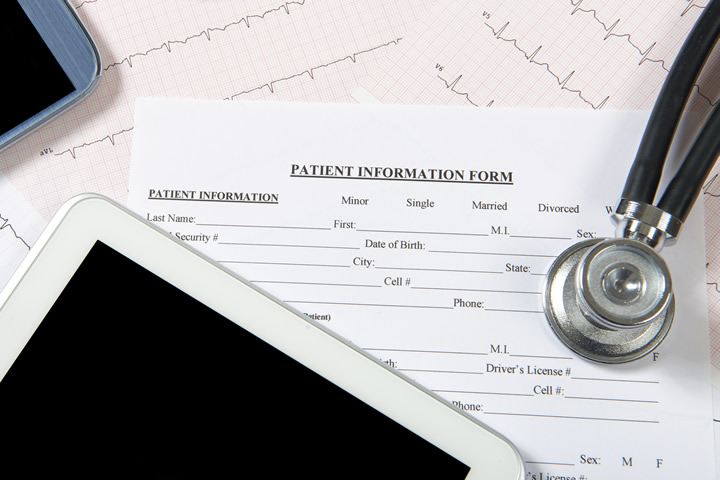Professional truckers spend hours each day behind the wheel and will encounter hundreds of drivers, road hazards and other issues during that time. So naturally, it’s important to make sure that anyone with a CDL license is performing as safely as possible. And since some medical conditions make people more vulnerable to having accidents, you’ll need to prove you are in good health by passing a Department of Transportation (DOT) physical.
The thought of this may intimidate some drivers, but knowing what to expect can eliminate some of your worries. Here are a few things you should know about taking and passing a DOT physical.
Maintaining Blood Pressure
A common reason people fail their physical is due to high blood pressure. To obtain a one-year certificate, your systolic blood pressure should be between 140 and 159, while your diastolic reading should fall between 90 and 99.
This is one problem that can be corrected with oral medication. Accordingly, you should continue taking any blood pressure medication that’s been prescribed and avoid using tobacco or caffeine in the days leading up to your physical.
Diabetes and Blood Sugar
To pass this portion, your A1C test should reveal no more than a 10% glucose level. If you have diabetes, you should have a physician-approved plan on file. If that plan includes insulin injections, you must also have your doctor complete form MSCA-580 within 45 days of your DOT exam.
To ensure the best possible reading, watch your diet carefully. Avoid sweets and sugary beverages, which will increase your glucose level. If your doctor has prescribed medication, be sure to take it as directed. Consider checking your blood sugar levels more frequently in the days leading up to your physical. That way, you can make adjustments in your diet and medication if needed.
Sleep Apnea
If you have sleep apnea, you must provide documentation that it is under control. Part of this will involve a recent sleep study performed within the last 12 months, along with a written release from your treating physician.
The Federal Motor Carrier Safety Administration (FMCSA) sponsored a study performed at the University of Pennsylvania. This study showed that around 28 percent of all commercial drivers suffer from some form of sleep apnea. This can be problematic because sleep apnea decreases your alertness and makes it more likely you will fall asleep at the wheel.
Vision
The vision test is another area in which people come up short on the exam. A keen sense of vision is required anytime you are driving, yet problems with eyesight can easily be corrected with contacts or glasses. If it’s been some time since you last had a vision exam, it may be time for an updated prescription. Just be sure and bring your new glasses with you and you should have no problems.
Hearing
A hearing test is also required as part of a Department of Transportation physical. Fortunately, problems with hearing can be corrected through the use of hearing aids. Prior to the exam, make sure any hearing devices are in good working order. You might also want to have your ears checked for wax buildup and schedule irrigation if needed.
Heart Issues
During the screening process, you’ll be asked about current or previous heart conditions. If you have been diagnosed with a cardiac problem, you must undergo and pass a separate stress test from your physician. This test must be performed annually, and you will need to provide documentation at the time of your physical exam.
Drug and Alcohol Testing
The FMCSA mandates drug and alcohol testing for all commercial drivers. The rules for this testing are spelled out in 49 CFR Part 40. In addition, 49 CFR Part 382 spells out when operators are to be tested. Specifically, DOT drug testing is required:
- Prior to an offer of employment
- Immediately following an accident involving a fatality or injury
- Randomly throughout the year
- Whenever there is a reasonable suspicion that someone is abusing drugs or alcohol
- Upon returning to duty following a suspension for drug or alcohol use
What Substances are Tested For?
DOT drug testing will involve checking for the following substances:
- Marijuana
- Cocaine
- Opiates, codeine, and opium derivatives
- Methamphetamines and amphetamines
- CP or phencyclidine
In addition, the testing will also look for a blood alcohol concentration of 0.02 or higher. This means you should avoid consuming alcohol in the 12 hour period just prior to your examination.
Passing the DOT Physical
There are a few things you can do to eliminate the odds of a false positive in one or more areas and give yourself the best possible chance of passing it. These include:
- Eating a healthy, balanced diet in the days leading up to your exam. Avoid caffeine, salt, and fatty foods in particular.
- Making sure you take all medication as scheduled. Be careful not to run out of any prescription drugs as the time for your exam draws near.
- Getting a good night’s sleep the evening before your test.
- Avoiding stress as much as possible. Anxiety can cause your blood pressure to spike, which could lead to you failing that part of the exam.
- Staying well hydrated right before you’re physical. If you are dehydrated, your blood pressure may be higher than normal and medical personnel might also have difficulty drawing a sample.
Reschedule your exam if you have a cold or otherwise feel ill. Even minor illness such as the common cold can sometimes throw medical tests out of whack.
What to Bring to the DOT Physical Exam
Having the right documentation will also make things easier. As such, you should bring the following items with you to ensure there are no snags in the process:
- Current medical records from your treating physician, particularly if you are being treated for sleep apnea or a heart condition.
- Your current medications or a list of prescription drugs you are taking.
- An updated pair of prescription glasses or contact lenses if required.
- Hearing aids with working batteries.
- Any other medical devices you routinely rely on such as a CPAP machine.
Preparation is the Key to Passing the DOT Physical
Being prepared for your physical will make the event less stressful while ensuring you the best possible results. Keep the above information in mind so that you are not caught off guard by any of the Department of Transportation’s requirements.












